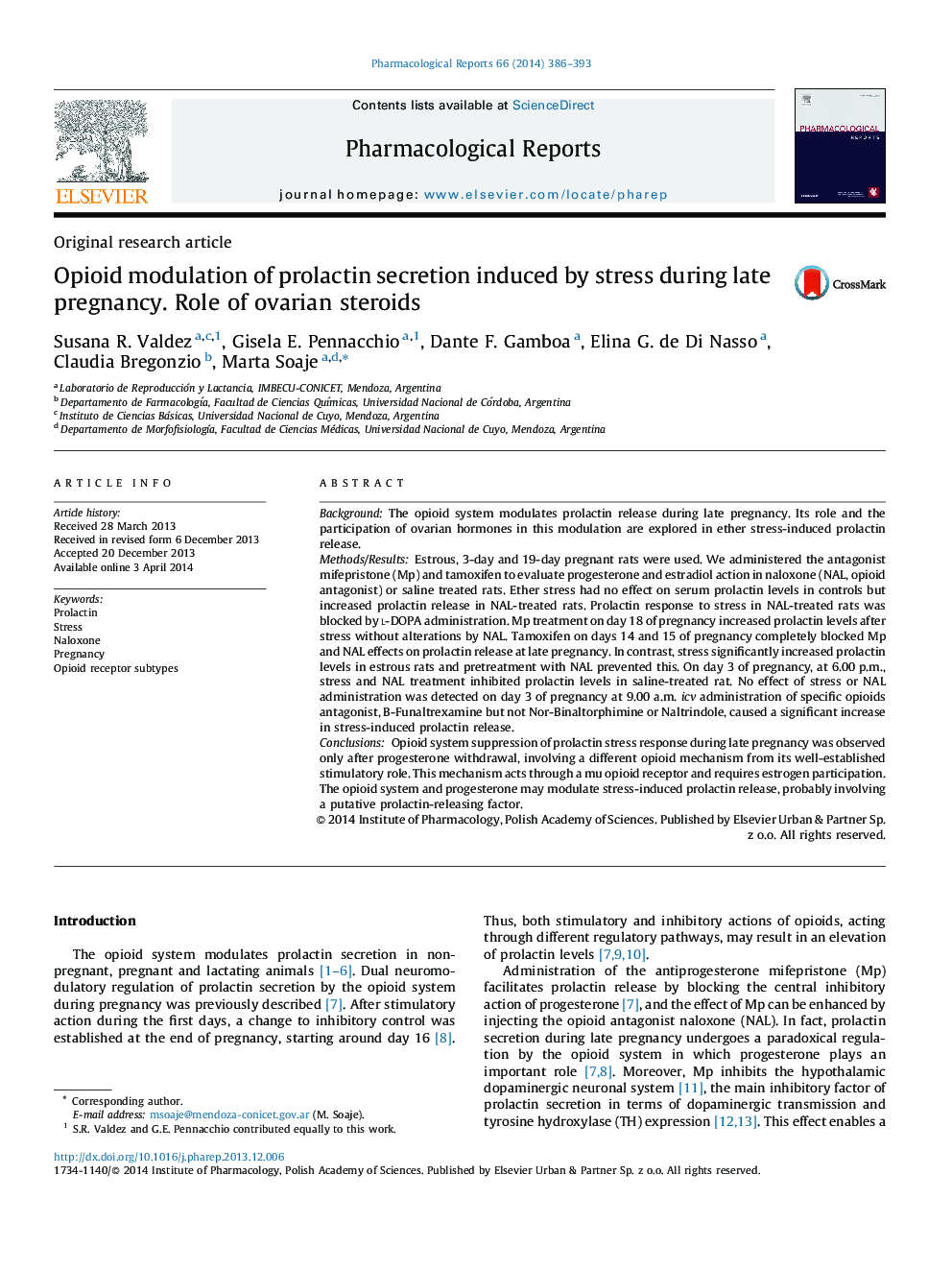| کد مقاله | کد نشریه | سال انتشار | مقاله انگلیسی | نسخه تمام متن |
|---|---|---|---|---|
| 2012188 | 1067027 | 2014 | 8 صفحه PDF | دانلود رایگان |
BackgroundThe opioid system modulates prolactin release during late pregnancy. Its role and the participation of ovarian hormones in this modulation are explored in ether stress-induced prolactin release.Methods/ResultsEstrous, 3-day and 19-day pregnant rats were used. We administered the antagonist mifepristone (Mp) and tamoxifen to evaluate progesterone and estradiol action in naloxone (NAL, opioid antagonist) or saline treated rats. Ether stress had no effect on serum prolactin levels in controls but increased prolactin release in NAL-treated rats. Prolactin response to stress in NAL-treated rats was blocked by l-DOPA administration. Mp treatment on day 18 of pregnancy increased prolactin levels after stress without alterations by NAL. Tamoxifen on days 14 and 15 of pregnancy completely blocked Mp and NAL effects on prolactin release at late pregnancy. In contrast, stress significantly increased prolactin levels in estrous rats and pretreatment with NAL prevented this. On day 3 of pregnancy, at 6.00 p.m., stress and NAL treatment inhibited prolactin levels in saline-treated rat. No effect of stress or NAL administration was detected on day 3 of pregnancy at 9.00 a.m. icv administration of specific opioids antagonist, B-Funaltrexamine but not Nor-Binaltorphimine or Naltrindole, caused a significant increase in stress-induced prolactin release.ConclusionsOpioid system suppression of prolactin stress response during late pregnancy was observed only after progesterone withdrawal, involving a different opioid mechanism from its well-established stimulatory role. This mechanism acts through a mu opioid receptor and requires estrogen participation. The opioid system and progesterone may modulate stress-induced prolactin release, probably involving a putative prolactin-releasing factor.
Journal: Pharmacological Reports - Volume 66, Issue 3, June 2014, Pages 386–393
